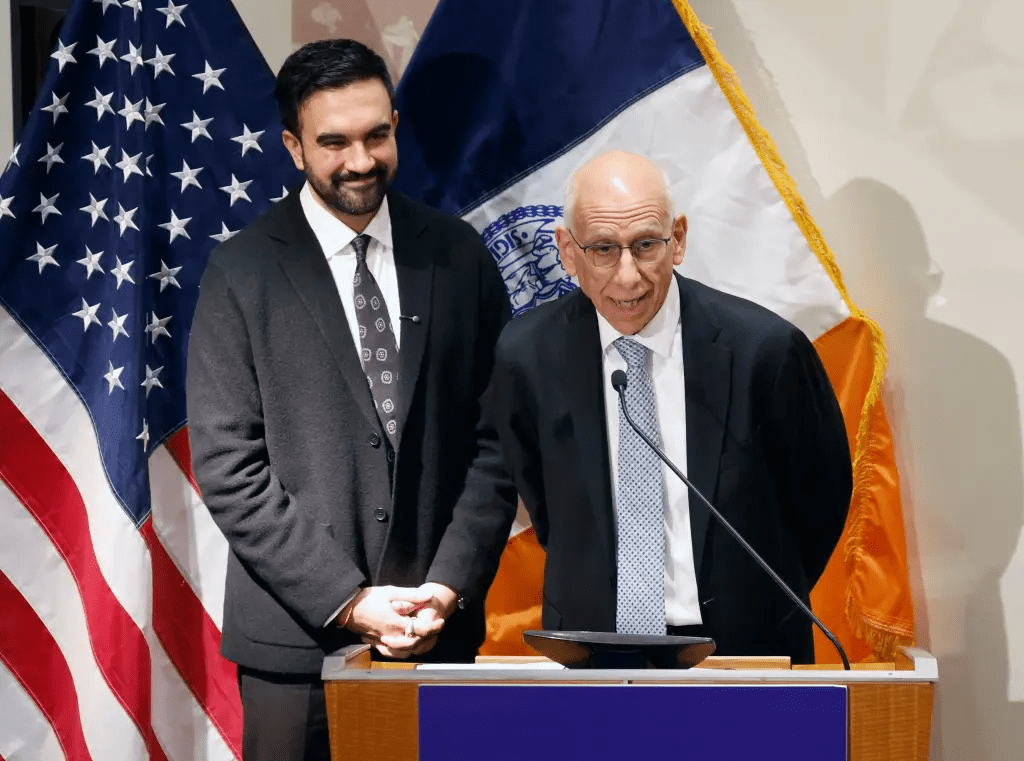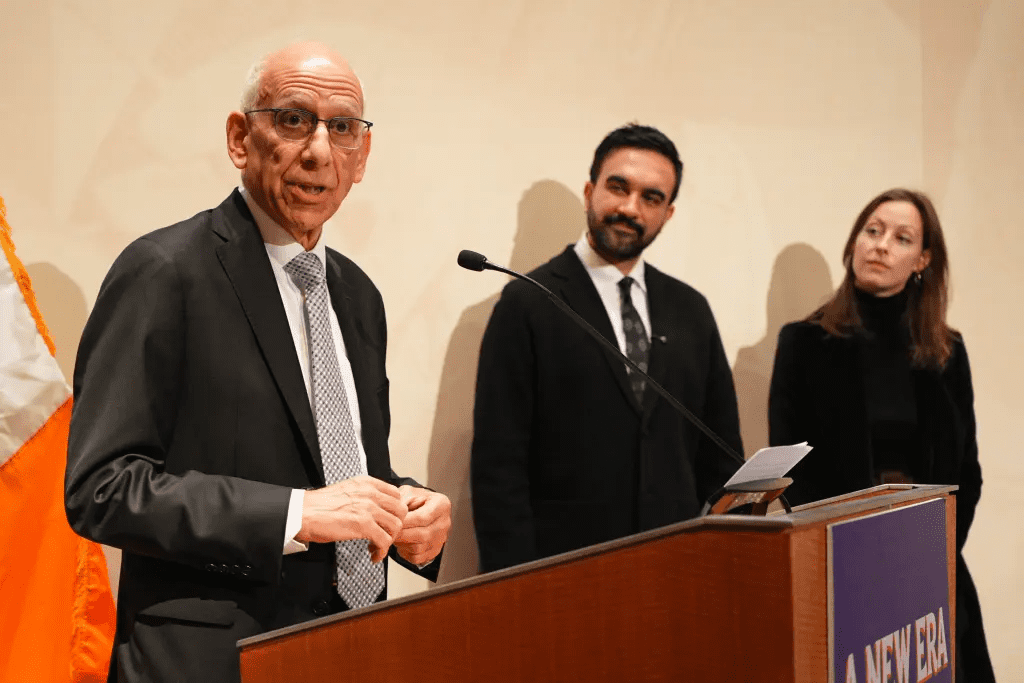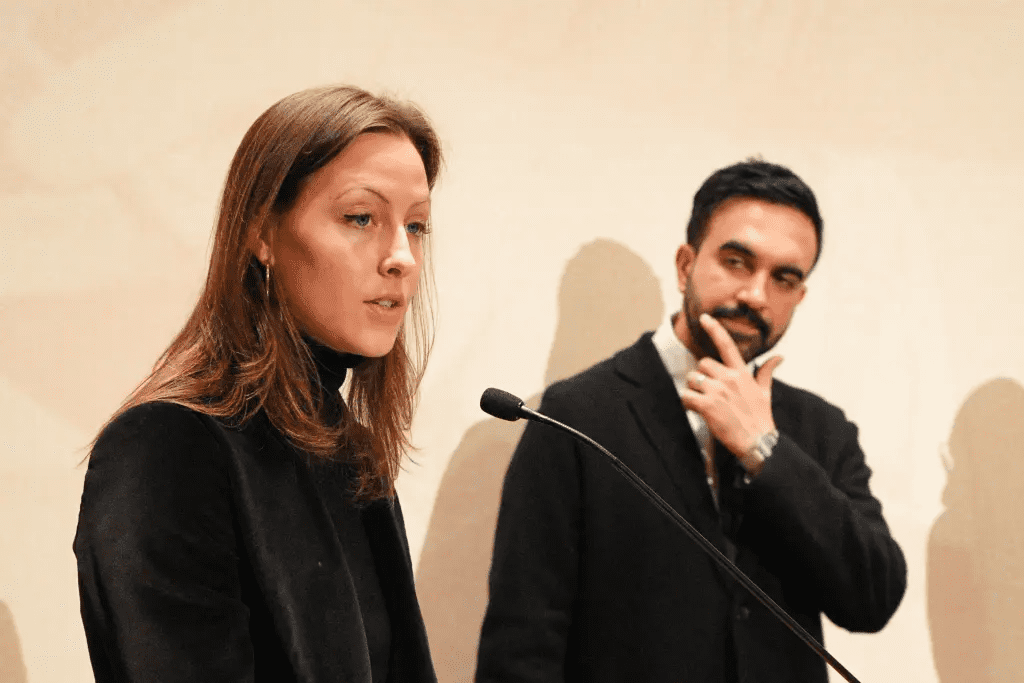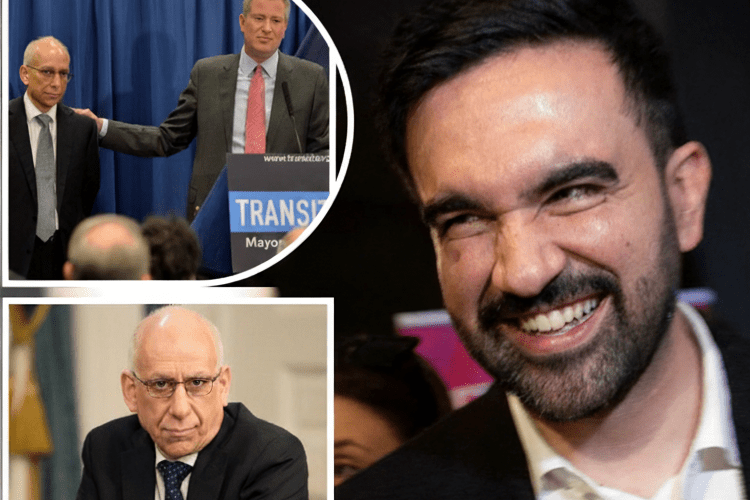Mayor-Elect Zohran Mamdani Appoints 74-Year-Old Veteran Dean Fuleihan as His Top Deputy to Run New York’s $120 Billion Budget!
In a bold stroke that surprised both insiders and skeptics, New York City’s incoming mayor, Zohran Mamdani, announced that he is appointing 74-year-old veteran budget expert Dean Fuleihan as his first deputy mayor, the top operational role in his incoming administration. Fuleihan brings more than four decades of public-finance experience in Albany and the city, including a stint as budget director and first deputy mayor under Bill de Blasio. His selection signals that Mamdani’s transformative progressive vision will be backed by institutional heft and experienced hands.

Mamdani, 34, will assume office January 1, 2026, and has laid out an ambitious agenda: universal childcare, fare-free buses, city-run grocery stores, and hundreds of thousands of new affordable homes, all funded through tax increases on high earners and corporations. Yet the city faces a looming budget shortfall of around $5 billion, and New York’s operating budget hovers near $120 billion. Fuleihan’s role will be key in translating ideas into actionable plans.
In announcing the appointment, Mamdani emphasized that “experience matters when we are undertaking the work of transforming politics in our city,” suggesting that the incoming generation of leadership needs guidance from seasoned professionals. Fuleihan’s past record includes growing the city budget from $72 billion to $85 billion during his time as budget director — a figure that serves both as evidence of his capability and as a caution about controlling growth.
Critics of Mamdani’s platform have long questioned how the youthful mayor-elect would balance bold social programs with fiscal discipline. By tapping Fuleihan, Mamdani appears to be answering those concerns head-on. For city employees and union leaders, this move provides reassurance that a seasoned hand will guide the day-to-day nuts and bolts of City Hall. Meanwhile, progressive voters appear to interpret the appointment as a bridge between change and practical governance.

Still, the challenges are steep. Mamdani’s agenda depends on securing cooperation with the State Legislature and the governor’s office, managing federal funding risks — including threats from former President Donald J. Trump to cut off New York’s federal support — and delivering services to a city still grappling with affordability, public-safety concerns and infrastructure decay. Fuleihan’s mandate is not simply continuity; it’s modernization with discipline.
For his part, Fuleihan accepted the role with the quiet professionalism that marked his career. His decades in the budget trenches give him a network of relationships and institutional memory that few other candidates could match. As one former Albany aide noted, “Dean has seen this budget crisis cycle before; now the question is whether he can help keep the promise side of politics from out-spending the reality.”

The optics of the pairing are compelling: the next generation of New York leadership, embodied by Mamdani’s youthful energy and progressive vision, aligned with the steady hand of a veteran fiscal manager. The question that looms is not just what they will propose, but how they will finance, implement and sustain it. New Yorkers watching the transition will be looking for signs of realism as much as ambition.
As the countdown to January begins, City Hall insiders report focus turning to key hires, budget forecasts and negotiations. The next few weeks will reveal how the duo intends to reconcile bold promises with practical limitations. For a city hungry for both change and competence, this leadership pick may offer both — if they deliver.


